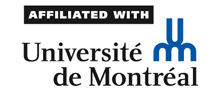On December 21st, Catalans voted in an election to their regional Parliament. Spanish Prime Minister Mariano Rajoy called the election hoping to lower the tension caused by the crisis over independence. However, as in the previous regional election held in 2015, pro-independence parties collectively won a majority of seats. At the same time, the party that most strongly opposes independence, Citizens, won a plurality of votes and seats.
Making Electoral Democracy Work (MEDW) conducted an online survey over the seven days preceding the election with a sample of 1500 respondents obtained from Survey Sampling International. Respondents were weighted so that our sample is representative in terms of age, gender, education, province, the decision to vote, and vote choice.
We found that voters overwhelmingly voted for a party on their side of the independence issue. We asked respondents how strongly they support or oppose independence on a scale from 0 to 10, with higher values indicating stronger support. We consider those who gave a score under 4 independence opponents (35.9% of the sample), those who gave a score over 6 independence supporters (47.6% of the Sample), and those who answered from 4 to 6 ambivalent (16.4% of the sample).
Figure 1 shows how respondents in each group voted. As we can see nearly all independence supporters voted for one of the pro-independence parties, Together for Catalonia (JxC), Catalan Republican Left (ERC), and the Popular Unity Candidacy (CUP). Most of those who oppose independence voted for one of the parties opposing independence, Citizens (Cs), the People’s Party (PP), and the Party of Catalan Socialists (PSC). The more ambivalent Catalonia in Common-We Can (Comú) did best among Catalans who neither clearly support nor oppose independence.
Figure 1: Vote Choice by Position on Independence
Based on the independence scale, supporters of independence, although a minority, appear to outnumber those opposing it. We also asked about independence two other ways.
First, we ran a question-wording experiment in which half the sample was asked whether they want Catalonia to become an independent state. The other half was asked whether they want Catalonia to separate from Spain. As Figure 2 shows, when asked whether Catalonia should become an independent state, the same percentage of Catalans says yes as no (45%). When asked whether Catalonia should separate from Spain, however, opponents outnumber supporters of separation (47% compared to 41%).
Figure 2: Support for an Independent State Compared to Separation from Spain
We also asked Catalans what their preferred relationship is between Catalonia and Spain using a question-wording experiment. One random half of the sample was asked whether Catalonia should be “an autonomous community with less autonomy than it currently has,” “an autonomous community with the same autonomy it currently has,” “an autonomous community with more autonomy,” or “an Independent state.” The second half of the sample was presented with the same set of categories except the option “autonomous community with more autonomy” was replaced with “state in a federal Spain.” This option – a “state in a federal Spain” – is the solution to the nationalist conflict Catalan and Spanish Socialists have been proposing for years.
Figure 3 presents support for these options in each of the groups. Once again, we find different levels of support depending on the question asked. In the “more autonomy” version, 39% support independence. In the federalization option, 30% do. Question wording clearly makes a difference.
Figure 3: referred Relationship Between Spain and Catalan, by Question Wording
Finally, we asked people to evaluate four major decisions made by the Catalan and Spanish governments over the past three months: the Catalan government’s decision to organize an illegal referendum, the Spanish government’s decision to send the police to stop the referendum, the Catalan government’s decision to declare independence, and the Spanish government’s subsequent decision to suspend autonomy. As the table below shows, Catalans clearly opposed decisions made by both governments, except the Catalan government’s decision to hold an illegal referendum, which received slightly more support than opposition.
Table 1: Percentage who Support Government Actions
| Support | Oppose | Ambivalent | |
| Hold illegal referendum | 44.0 | 42.1 | 13.8 |
| Send police to stop the referendum | 19.4 | 70.4 | 10.1 |
| Declare independence | 35.5 | 49.1 | 15.3 |
| Suspend Catalan autonomy | 27.2 | 54.8 | 18.0 |
In short, on December 21st, Catalans voted overwhelmingly based on their attitudes towards independence. However, voters’ preferences for Catalonia’s future vary depending on the question wording. Finally, Catalans support neither the actions of the Catalan government nor those of the Spanish government in the recent crisis over independence.
Eric Guntermann is a postdoctoral researcher in the department of political science at Université de Montréal. He is the research coordinator for Making Electoral Democracy Work.
